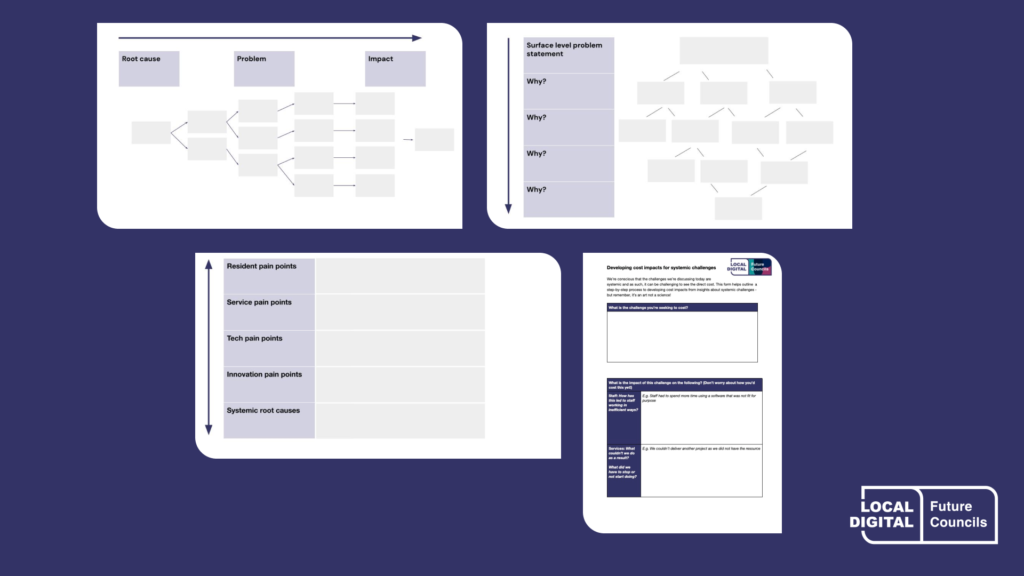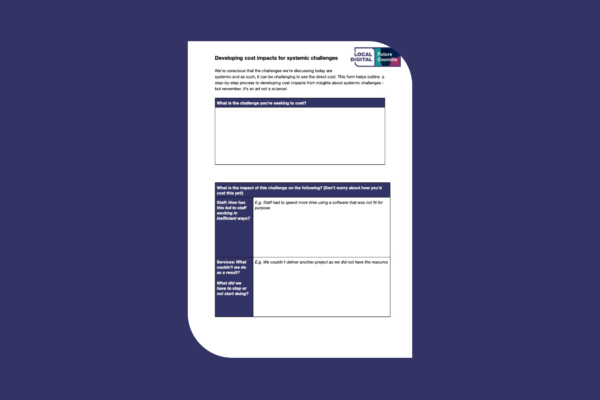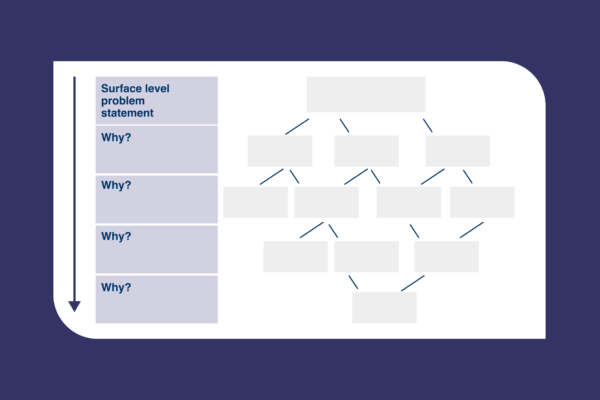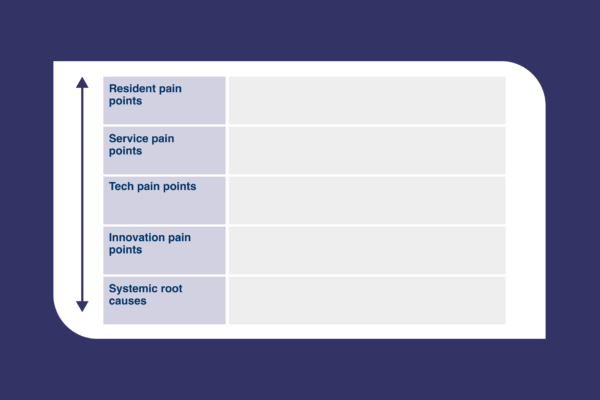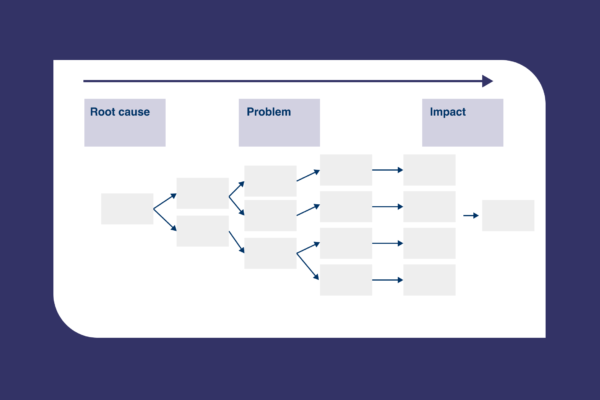Future Councils is a DLUHC programme to support local authorities across England to become modern and resilient.
From March to November 2023, we worked closely with 8 councils as part of a pilot to understand the shared challenges that councils are facing. During the pilot, we supported the councils to explore the root causes behind what’s blocking them from becoming modern and resilient. Learn more about the pilot of Future Councils.
The Future Councils playbook is a collection of some of the tools we used during the pilot that can help you on your own transformation journey.
 Department for Levelling Up, Housing and Communities
Department for Levelling Up, Housing and Communities
